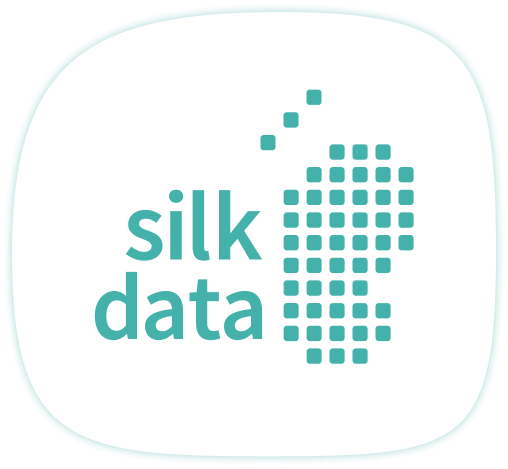AI-powered
We employ custom AI and cutting-edge natural language programming (NLP) algorithms to ensure extended functionality and high-quality results.

Traditional keyword search often falls short in modern business environments. Users expect search tools to understand context and synonyms, just like Google — yet many enterprise systems rely on outdated methods that fail to deliver relevant results. This is especially frustrating in corporate document management systems, where access to data is restricted, making keyword-based searches even more ineffective.
This is where AI-powered search comes into play. Instead of matching exact words, AI-driven search engines analyze the meaning and context of documents using advanced semantic mapping. This allows users to narrow down search results easily, applying context-based filters that traditional algorithms simply can’t handle.
Alternatively, the user can search for similarity among documents and find all documents with a related meaning, not based on pure keywords.
When users type words in a search bar, they are looking for data in documents relevant to the topic of their interest. With AI search, users don’t have to guess the exact phrasing — they can look for documents based on similarity and related meaning, not just keywords. The system understands intent, helping users find the right information faster while reducing the frustrating trial-and-error of traditional searches.
AI search tries to increase search accuracy by determining the possible user purpose and the context in which words are used in the data to get more relevant results.
Our custom AI and Machine Learning algorithms analyze large volumes of texts to extract meaning from separate fragments and explore different topics and how they are related to each other and to a user’s context.
On the left, you can an example of the AI-assisted search browser extension in action.

As a proof of concept, we used Wikipedia, analyzing its full text corpus, to build an interactive map of topics. Each dot (topic) represents a subject, with connections between them, and subject groupings they form based on their semantic proximity.
Beyond the functionality included in the demo, the AI search is compatible with other standard search features, like search suggestions or personalized ranking of results.
Unlike keyword search, AI search understands what users mean, not just what they type. It looks beyond exact words, considering intent, context, and synonyms to find the most relevant information. Instead of only matching what’s written in the query, it uncovers related concepts and hidden connections in the data. Put simply, keyword search gives results based on the words entered, while AI search finds what the user actually wants.
We employ custom AI and cutting-edge natural language programming (NLP) algorithms to ensure extended functionality and high-quality results.
Our experience with document management software allows us to process textual content in different file formats (PDF, Word, Audio, Video, etc.).
The technology supports dozens of languages with nearly unlimited extension possibilities.
AI search goes beyond just finding data. With AI text summarization, businesses can extract key insights from massive documents in seconds, making decision-making faster and more efficient.
Here’s how different industries are using AI search to work smarter, not harder.

AI search streamlines case law research, contract analysis, and document retrieval by understanding legal language and context. It helps lawyers find relevant precedents, statutes, and legal opinions faster, reducing time spent on manual searches and improving accuracy in case preparation.

AI search enhances patent discovery by identifying similar inventions, analyzing prior art, and detecting potential overlaps. It speeds up the patent application process, ensuring comprehensive research while minimizing the risk of overlooked competing patents.

AI search helps consultants analyze market trends, financial reports, and competitive intelligence by extracting key insights from vast data sources. It enables faster decision-making and more accurate strategic recommendations tailored to clients' needs.

AI search automates data collection, trend identification, and sentiment analysis across multiple sources. It provides deeper insights into consumer behavior, industry shifts, and emerging opportunities, helping firms create data-driven reports with greater efficiency.

AI search simplifies content organization, retrieval, and recommendation, ensuring faster access to archives and relevant materials. It enhances discoverability for readers and streamlines editorial workflows by automatically tagging and categorizing content.

AI search helps journalists quickly find background information, verify facts, and analyze large datasets. It aids in investigative research by connecting related stories, sources, and trends, improving reporting accuracy and efficiency.

AI search accelerates talent acquisition by scanning resumes, identifying relevant candidates, and matching skills to job descriptions. It streamlines compliance checks and internal documentation searches, improving recruitment and HR operations.

AI search enables scientists and academics to locate relevant studies, analyze research papers, and identify connections across disciplines. It reduces time spent on literature reviews, ensuring faster access to critical knowledge.

AI search optimizes innovation by analyzing patents, technical reports, and scientific literature. It helps R&D teams discover emerging technologies, assess competitors' advancements, and find solutions to technical challenges more efficiently.





Silk Data responded quickly to our request, analyzed the documents provided, and promptly delivered the solution.
Silk Data provided a rapid and versatile solution to detect plagiarism in online exams during the COVID-19 pandemic. The aim was to combat cheating and identify potential plagiarism...

Silk Data´s ability to design, develop and maintain large projects using different technologies is impressive.
As a long-term partner, the Silk Data team still impresses us with high-quality code and their ability to keep up through all sprints. They contributed robust applications on iOS, Android and ...

We are impressed with the engagement Silk Data show toward our product.
I've worked with Silk Data for years and am always impressed by the personal engagement we get from every single developer on our team. We have had multiple developers come and go, but...

A development partner you can trust. Will come back with future initiatives.
Silk Data helped the client reach the deadline and exceed expectations. They had great communication skills and were fluent and transparent. The team adapted quickly to the...
We work in various directions, providing a vast range of IT and AI services. Moreover, working on any task, we’re able to provide you with products of different complexity and elaboration, including proof of concept, minimum viable product, or full product development.